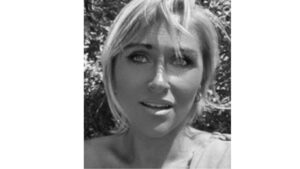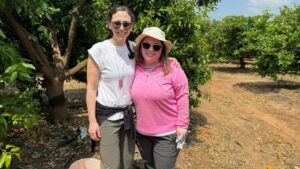On any given day, check your media source of choice and you’ll likely see dire headlines about the state of public education.
From budget shortfalls and teacher shortages to plummeting test scores and student mental health crises, it’s enough to convince citizens that public school systems in Baltimore and beyond are on the brink of collapse.
For the first program of its 2023-2024 season, Great Talk Inc. — a local nonprofit in partnership with the Alexander Grass Humanities Institute of Johns Hopkins University — will explore the subject of public education. A free panel discussion, “How to Educate Our Children for Their Best Future in a Changing World,” will be presented in person and via Zoom on Wednesday, Oct. 4, at 7 p.m.

The panel will feature Dr. Joshua L. Glazer, associate professor of education policy at George Washington University; Baltimore-based entertainer, writer, director, playwright, educator and activist Rain Pryor; Oliver Song, a students’ rights advocate, environmentalist and activist; and Conor P. Williams, senior fellow at the Century Foundation, a researcher and writer covering educational equity and school diversity issues.
Dr. William Egginton, director of the Alexander Grass Humanities Institute and chair of Modern Languages and Literatures at JHU, will serve as moderator. The event will be held at JHU’s Bloomberg Center for Physics & Astronomy, room 272, on San Martin Drive in Baltimore.
Jmore spoke recently with Dr. Glazer about his perspective on the challenges facing today’s public schools.
Jmore: Since the pandemic, it seems schools are struggling more than ever. What do you see?
Dr. Glazer: There are, of course, short-term challenges resulting from the pandemic and the loss of learning that hits our most vulnerable populations and the schools that serve them the hardest, particularly kids who miss kindergarten and first grade.
If you’re a third-grade teacher right now, you’re struggling. You have kids who may not be on grade level in reading or math and [lack an] understanding of what it means to be in school, interact with other kids, teachers. That’s a very big deal.
The other component is teacher shortage. Many teachers retired during the pandemic, and recruitment efforts are encountering a lot of difficulties. The [U.S.] Department of Education reported last March that 40% of U.S. schools are reporting staff shortages in their schools.
That said, I think it’s important that those immediate problems don’t distract us from understanding where we are in U.S. education at this moment in history, where we’ve come from and the longer-term challenges ahead.
How would you describe the longer-term challenges?
Since the late 19th century, the battle has been about access [to education]. That was the question. Are we going to let poor people in? Are we going to let girls in? Immigrants in? People of color in? People with disabilities?
The founders thought they were involved in an enormously egalitarian and democratic crusade by having a mass system of public schooling that would be free and open to all. And it really was revolutionary at the time. We were an entire generation ahead of Great Britain, Europe, the Far East. The rest of the world thought the U.S. was crazy for having this free system of education.
But the founders were not thinking we should have intellectually serious content for all kids. They [thought], ‘These aren’t kids who have the ability to deal with serious academic content or intellectual rigor. They’re poor. They’re immigrants. They’re non-white. So we’ll invent a lot of new classes for them, like home economics, woodshop, child development’ — all those non-academic courses that are still in our high schools.
Then, the rest of the world caught up. Mass public education became a staple of all of the developed world and much of the developing world as well. The imperative was no longer about who you let in, but what kind of learning opportunity could you provide? That has proven to be an enormous pivot not just for the U.S. but other countries, too, simply because our institutions were not designed with that in mind. When you set about trying to reverse course on a system which has been doing it one way for 100 years, that’s a really big lift. It’s not going to happen overnight.
The way I think about it is this is a multi-generational effort. We have made quite a bit of progress. The fact that every school and everybody involved in public education today is concerned about the academic outcomes for poor kids, kids of color, English-language learners? Just the fact that this has become so central to public discourse and schools are working on it [is a big deal]. So I’m not party to the notion that our schools are a disaster. Yes, there are many serious issues and many ways that things can and should get better. But I think it’s good to adopt a bit of a historical perspective here.
What should schools’ priorities be?
We need to maintain our focus on academic rigor. We need to keep working on how we organize a system to be able to meet [rigorous] standards in an educationally meaningful way. Setting standards [like Common Core] was great but the moment we did that, we created this huge gap between what we were expecting and what the system had the capacity to do.
We’re still learning and figuring out how we design our schools, districts, teachers and colleges to meet these expectations. For most of our history, teaching was entirely an individualistic affair. Teachers figured out what to teach and how to teach basically on their own. That’s not going to work anymore because the demands of the job are too great. It’s too much to expect that millions of people working in relative isolation can manage it. We’re in the midst of turning teaching into a modern-day profession in which there is an actual knowledge base, in which teachers have a shared language, shared diagnostic classifications around students who struggle, and instructional interventions that are shared among a community of practitioners.
There is definitely progress, but it’s not a light that you switch on. The design of our system is so decentralized, and most educational decisions made in the U.S. are made at the local level, at districts. What curriculum we’re going to take, who we’re going to hire, who’s going to be our principals, what counts as good leadership — that’s being made by thousands of local districts.
If we were in Singapore, there’s a ministry of education that decides those things and blasts it out to the rest of the system. Most countries have a ministry of education, but we don’t. And our department of education has zero constitutional authority over our education system. They use financial inducements. But that’s all it is. So that means that this change process is going to be uneven, inconsistent, extremely incremental and unfold in different ways in different places.
It doesn’t mean it’s not happening or that we won’t make progress. We are just doing it in a very American way. We need to stay the course.
What kind of work are you personally doing with schools?
I spent quite a number of years — and I’m currently working on a book — on public schools in Memphis, [which] has a lot in common with Baltimore. They’re both cities that have overwhelming intergenerational poverty; they’re cities that have a history of racism and racial oppression; and they’re both Black-led cities. What we saw in Memphis were really two models. One is a more market-based system that wants to harness the ideas of markets to drive changes in public schools. That typically involves two things in our country: parent choice and charter schools. What happened in Memphis is that the state got fed up with its most underperforming schools and decided to take them over and hand them over to charter organizations. [They said] ‘We’re going to allow parents to choose which of those they want [their children] to go to.’ And those charter organizations are going to be under enormous pressure to produce outcomes, and if they if they don’t succeed they’ll go out of business.
But the city and people of Memphis were not happy with that. They pushed back and said, ‘We’ll come up with our own answer to these poor performing schools. We’re going to create a sort of enclave within the district, and we will initiate our own reform effort to compete with this state one.’ For 10 years, the schools competed with each other.
Who won?
If you ask most people in Memphis, they will say the local (non-charter) system won because it got better results and was able to harness all the resources of the community. If you ask me, I’d say both lost — the city lost. And the reason is that pitting two systems against each other, dividing the community so you have loyalties to two different systems, creating competition for teachers and students and other types of resources, turns out to be an enormous waste of energy, money and time. Because what a place like Memphis or Baltimore needs is everybody to come together. It’s an all-hands-on deck affair.
To register for Great Talk Inc.’s upcoming program, visit greattalk.org





